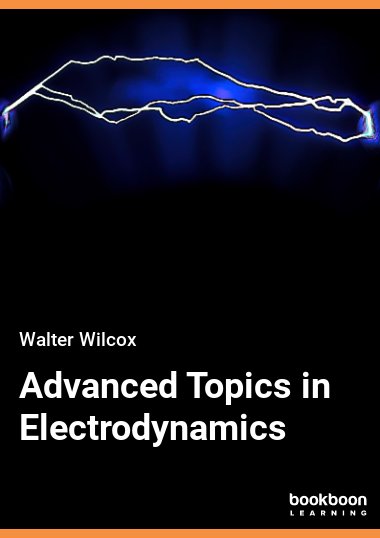Advanced Topics in Electrodynamics represents a short survey of advanced subjects in electrodynamic theory. The topics are organized under chapters covering wave equations, potentials and electromagnetic radiation. Phenomena such as reflection, transmission and polarization of electromagnetic waves are explained. Wave transmission in conductors and nonconductors is studied and wave guides are examined. The solution of electromagnetic wave equations in terms of scalar and vector potentials is explained in the second chapter. In the final chapter the phenomenon of electromagnetic radiation is developed and explained. The book includes 35 end-of-chapter problems that test understanding.
About the author
Walter Wilcox is Professor of physics and former graduate program director for the Baylor University Physics Department. He has served as a Member-at-Large of the Texas Section of the American Physical Society (2013-2016) and is presently serving as Secretary-Treasurer of the same APS Section. He earned a PhD in elementary particle physics from UCLA in 1981 under the guidance of Dr. Julian Schwinger. He has also taught and done research at Oklahoma State University (1981–1983), TRIUMF Laboratory (1983-1985), and the University of Kentucky (1985–1986). He has been awarded grants from the National Science Foundation (NSF) in theoretical physics and, in collaboration with Dr. Ronald Morgan, in applied mathematics. His research focuses on the development and use of numerical methods in the field of theoretical physics known as "lattice QCD". He is the author of recent physics textbooks on quantum mechanics, classical mechanics and classical electrodynamics. He maintains the trademarked “Open Text Project” website at Baylor University; this website is dedicated to the free dissemination of quality physics teaching materials and applications for disadvantaged students. He has served as a judge at the Central Texas and Engineering Fair for more than 20 years, and has also served as Society of Physics Students sponsor within the Baylor Physics Department.


